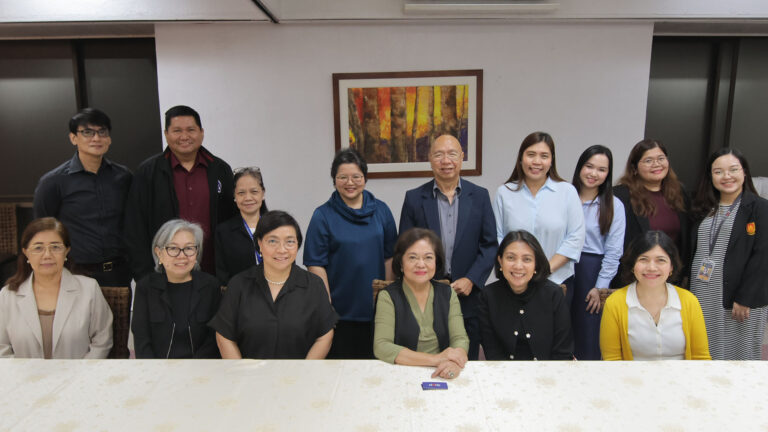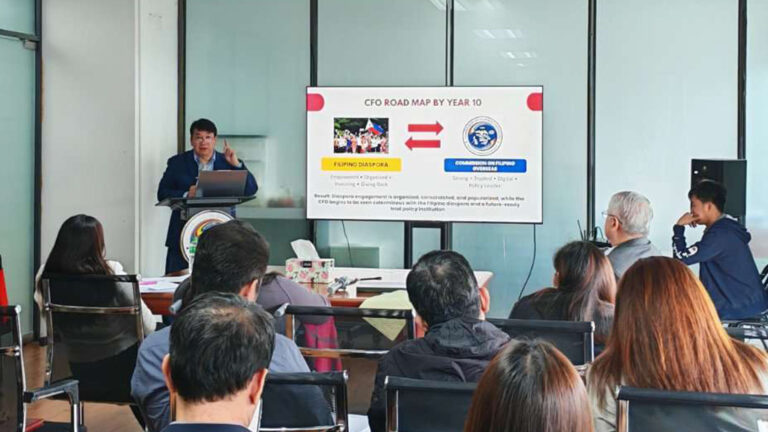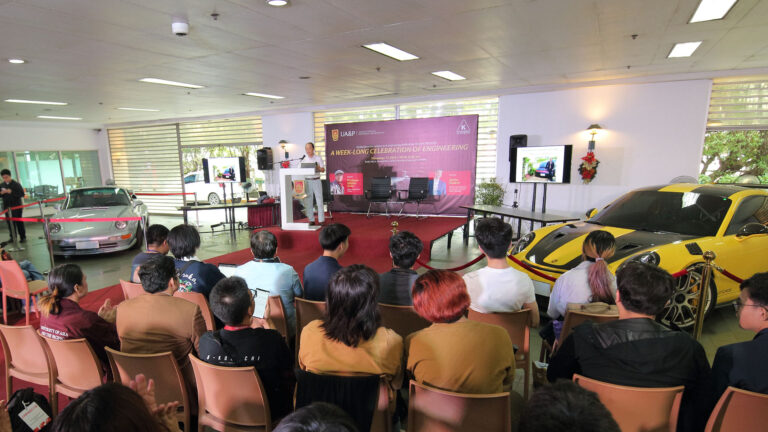News
UA&P hosts Data Science Symposium with renowned scientists
The School of Sciences, Engineering and Technology, in partnership with PLDT-Smart Foundation, hosted a Data Science Symposium on January 21, 2026. The lectures were delivered by two world-class scientists, who later in the afternoon supervised a hands-on workshop with the
UA&P, Clark Development Corporation explore potential collaboration
The University of Asia and the Pacific (UA&P) recently hosted an exploratory meeting with Clark Development Corporation (CDC), led by its President and CEO, Atty.
UA&P-CRCFI study underpins CFO’s long-term vision for diaspora engagement
The University of Asia and the Pacific (UA&P), through the Center for Research and Communication Foundation, Inc. (CRCFI), recently played a key role in the
The Million-Dollar Classroom: UA&P Engineering Students Study Automotive Design Up Close
ORTIGAS, November 19, 2025 — The University of Asia and the Pacific’s (UA&P) annual Technovation Week, traditionally a serious showcase of applied learning, elevated its



